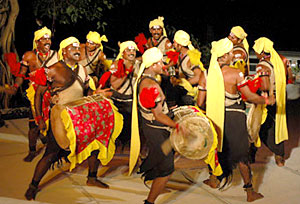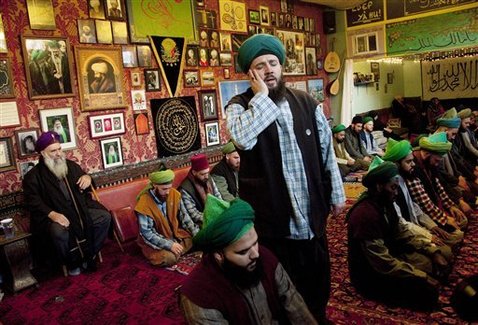INDIAN FOLK MUSIC AND CHANTED POETRY
INDIAN FOLK MUSIC

Indian folk music is an important part of life from childhood through old age and death. It is heard at festivals, ceremonies, religious rituals, dances, and is part of the work of daily life, whatever it may be. Because India has many different cultural groups, religions, and languages (as well as thousands of social categories or classes), it has many different kinds of folk music. Folk music styles vary widely from place to place, between men and women, and between classes of people. Dance, theater, song, and instrument playing are all tied together in Indian folk music. This varies from group to group, depending on the purpose of the music or the dance.

Some folk styles share with India’s classical tradition characteristics such as rhythm, meter, and ragas (special complex modes with elements of melody, ornamentation, and mood). The music of Indian folk theater uses classical Indian ragas. Folk theater music in the south uses rhythms that are from the classical tradition, as well.
Over 500 folk instruments have been collected in India, and collectors say that this is just a start. Some folk instruments have moved into classical Indian music-making circles. A folk lute that is played with a bow, called the sarangi, is now a favorite classical accompaniment instrument. The number and type of strings on the sarangi changes from group to group, depending on the need. A double reed instrument similar to the Western oboe, called the shahnai, has long been a featured instrument in many village festivals, weddings, and processions, and plays fanfares when needed. It is now also a concert instrument played in classical Indian groups. Kettledrums accompany the sound of the shahnai in both folk and classical use.CHANTED POETRY

Chanting poetry is one way Muslim people in India make music. As the words are chanted, usually love poems, they govern the musical elements. Chanting poetry is considered to be a high art in India, practiced by highly-esteemed poets as well as the general public.
BACK TO INDIAN CULTURE OF MUSIC
